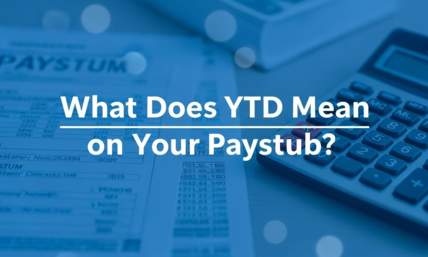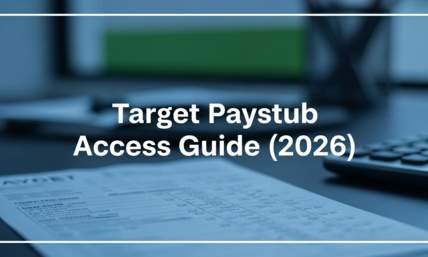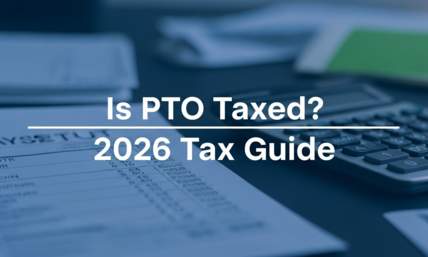These 5 Strategies Will Help You Own Tax Season As An Independent Contractor
This tax season was worse than past ones for several reasons. The first is that the Tax Cuts and Jobs Act left taxpayers confused about many changes to the tax code that took place when it became law in December 2017. The second reason is that many taxpayers who usually get and rely on tax refunds saw those refunds virtually disappear.
For the self-employed, it can be much more confusing. How can you get through this tax season as an independent contractor? Read on to find out.
Also read: 6 Situations You Need A Pay Stub
Employees vs. Independent Contractors
The big thing to understand during tax season is how independent contractors are different from employees. The IRS makes a distinction between the two, and it really depends on the arrangement you have with the companies or clients you work with. Employees and independent contractors may be paid the same for the same work, but under the surface, there are several differences.
Independent contractors have control over their time. They don’t need to be at an office from nine to five the way that employees do. They generally work on their own schedule. They may have more freedom and flexibility than employees, but that does come at a cost. Contractors are usually responsible for paying their own health insurance and taxes.
Independent contractors have to pay 15.3 percent in self-employment taxes no matter how much they make. You could make $6,000 for the entire year, and still have to pay the same taxes. The self-employment tax covers social security and Medicare expenses. Employees will have half, taken out of their checks, with employers paying the other half.
Also read: Paystubs Online For Your Business
Take All Of Your Deductions Possible Into Account
Another difference between independent contractors and employees is that you have the opportunity to take many more deductions. Employees usually can’t write off mileage, but contractors can. Below are some deductions that you want to take advantage of.
Home Office Deduction
This is the best deduction that you can take as an independent contractor. You have to qualify for it though, by having a separate space in your home or apartment that serves as your workspace.
What’s The 20 Percent Deduction?
This is a new deduction from the Tax Cuts and Jobs Act. You can deduct 20 percent of what you earn as pass-through income. There are some guidelines you need to check that will help you determine if you qualify or not.
Other Deductions
Basically, any expense related to your business can be deducted. You want to keep track of every expense and keep your expenditures within reasonable limits. Footing a $600 lunch bill when you make $20,000 a year in contracting might raise some flags for the IRS.
Also read: How to Get Free Pay Stubs Online
Keep Impeccable Records
The IRS audits a small percentage of taxpayers, but you want to be prepared in the off-chance that it audits you or asks for more information. You’ll need to prove your expenses and your income in case there are any questions. It’s not enough to look at your bank statements and use that as proof. You need receipts for everything.
If you pay cash for something, even a cup of coffee at a business meeting, get and keep the receipt. If you plan on writing off car mileage or transportation costs, keep a mileage book and save the receipts and documentation. The same goes for your income. You’ll want to have a clean record of your income that’s easy to track and prove.
Some clients will provide a 1099 form in January for you, others won’t, which could make things interesting. You can create pay stubs along the way, which is better than keeping an Excel spreadsheet.
Don’t Be Afraid To Ask For Help
Paying taxes as an independent contractor is challenging, and you’re bound to have questions as to what you can take as a deduction and what you can’t. Don’t assume anything when it comes to taxes. Your best bet is to work with a seasoned tax professional who can guide you in those grey areas and stay off of the IRS’ radar.
Also read: How Can You Tell If Someone Is Using A Counterfeit Pay Stub
2019 Estimated Payments
As an independent contractor, one of the most unnerving things to do at the end of tax season is to try to figure out how much you should pay in estimated taxes. For many contractors, their income fluctuates from month to month, making it hard to predict their revenue. For contractors with steady gigs, it becomes a little bit easier. You have a steady flow of income, but you still have to pay your estimated taxes.
If you’re going to pay more than $1,000 in taxes, you need to pay estimated taxes.
Failure to pay estimated taxes, even if you pay your taxes in full by April 15, can result in penalties by the IRS. The goal of the IRS is for you not to pay a lot on April 15 and for them not to have to disburse a big refund. How can you figure out what to pay in estimated taxes? A standard guideline is to set aside 15 percent of your income for taxes.
You’ll also have to set aside a percentage for state and local taxes as well. Depending on your income level and your expenses, you may have to put aside as much as 35 percent for taxes. If you find that you’re making more than you thought, you can pay a little more in estimated taxes each quarter.
Navigating Tax Season As An Independent Contractor
Tax season can be a lot of things, but it doesn’t have to be difficult. The mistake that many independent contractors make, is that they treat tax season as a one-time thing, or they wait until the last minute. If you really want to master tax season as an independent contractor, treat it as a year-round task. Stay up to date on your profit and loss by doing monthly reports and making sure that you are setting aside the right percentage of income for taxes.
That’s how you handle tax season like a pro. Ready to create pay stubs for your income records? Check out our paystub creator and get started!















